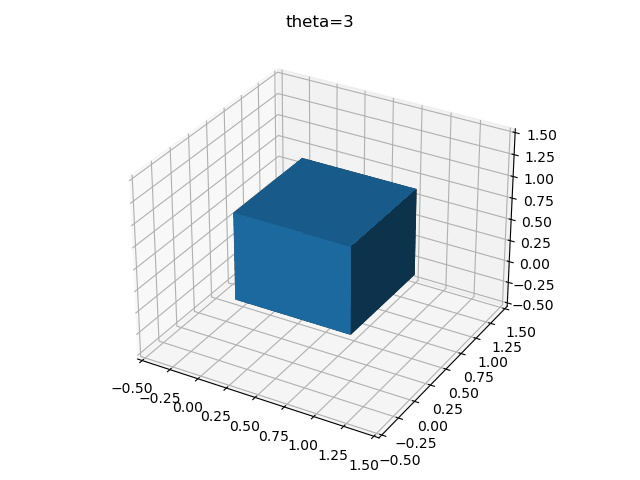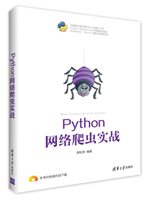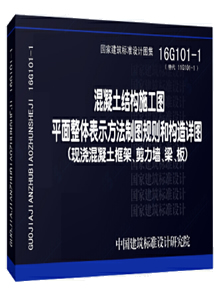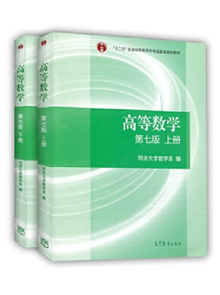我们帮大家精选了相关的编程文章,网友寿宜年根据主题投稿了本篇教程内容,涉及到Python欧拉角绘制立方体、Python绘制立方体、Python欧拉角、Python欧拉角绘制立方体相关内容,已被156网友关注,涉猎到的知识点内容可以在下方电子书获得。
Python欧拉角绘制立方体
先画个立方体
工欲善其事、必先利其器,在开始学习欧拉角模拟之前,可先绘制一个立方体。
在matplotlib中,这个任务可通过plt.voxels实现,下面先绘制一个最质朴的立方体

代码为
import matplotlib.pyplot as plt import numpy as np x, y, z = np.indices((2, 2, 2)) filled = np.ones((1,1,1)) ax = plt.subplot(projection='3d') ax.voxels(x,y,z, filled=filled) plt.show()
其中,x,y,z表示顶点,filled表示被填充的区域。由于其顶点数量为2×2×2,故只有一个立方体,从而filled是一个1×1×1的张量。
有了立方体之后,就可以进行欧拉角仿真了。
欧拉角和旋转矩阵
为了尽快进入演示部分,故对原理的介绍从略,仅从二维平面上的旋转矩阵出发,做一个简单的推导,而三维旋转矩阵,至少在形式上与二维是雷同的。
假设坐标系中有一个向量(x,y),其模长为r=√x2+y2,角度为θ0=arctan(y/x).若将其围绕坐标原点逆时针旋转θ,则其坐标变为

由于x=rcosθ0, y=rsinθ0,则上式可以写为

写成矩阵形式即为

也就是说,在平面直角坐标系上,向量绕原点顺时针旋转θ,相当于左乘一个旋转矩阵。
推广到三维,为了限制xy坐标平面上的旋转,要将其旋转中心从原点扩展为绕着z轴旋转,从而三维旋转矩阵可推广为

同理可得到绕三个轴转动的旋转矩阵,为了书写方便,记Sθ=sinθ,Cθ=cosθ,可列出下表。

初步演示
将旋转矩阵写成函数是十分方便的,下面用lambda表达式来实现
import numpy as np
# 将角度转弧度后再求余弦
cos = lambda th : np.cos(np.deg2rad(th))
sin = lambda th : np.sin(np.deg2rad(th))
# 即 Rx(th) => Matrix
Rx = lambda th : np.array([
[1, 0, 0],
[0, cos(th), -sin(th)],
[0, sin(th), cos(th)]])
Ry = lambda th : np.array([
[cos(th), 0, sin(th)],
[0 , 1, 0],
[-sin(th), 0, cos(th)]
])
Rz = lambda th : np.array([
[cos(th) , sin(th), 0],
[-sin(th), cos(th), 0],
[0 , 0, 1]])
有了旋转矩阵,就可以旋转,接下来让正方体沿着三个轴分别旋转30°,其效果如下

由于ax.voxels在绘图时,要求输入的是拥有三个维度的数组,而旋转矩阵是3 × 3 3\times33×3矩阵,相当于是二维数组,彼此之间可能很难计算,所以实际计算时,需要对数组维度进行调整
import matplotlib.pyplot as plt
# 用于批量调节x,y,z的数组维度
Reshape = lambda x,y,z : [x.reshape(2,2,2), y.reshape(2,2,2), z.reshape(2,2,2)]
filled = np.ones((1,1,1))
x, y, z = np.indices((2, 2, 2))
# 将x,y,z展开,以便于矩阵计算
xyz = np.array([x,y,z]).reshape(3,-1)
fig = plt.figure("rotate")
# 此为未旋转的正方体
ax = fig.add_subplot(1,4,1, projection='3d')
ax.voxels(x,y,z, filled=filled)
# 绕x轴旋转30°
X, Y, Z = Rx(30) @ xyz
ax = fig.add_subplot(1,4,2, projection='3d')
ax.voxels(*Reshape(X, Y, Z), filled=filled)
# 绕y轴旋转30°
X, Y, Z = Ry(30) @ xyz
ax = fig.add_subplot(1,4,3, projection='3d')
ax.voxels(*Reshape(X, Y, Z), filled=filled)
# 绕z轴旋转30°
X, Y, Z = Rz(30) @ xyz
ax = fig.add_subplot(1,4,4, projection='3d')
ax.voxels(*Reshape(X, Y, Z), filled=filled)
plt.show()
不同转动顺序的影响
众所周知,矩阵计算是不能交换的,反映到实际生活中,就是不同的旋转次序,可能会导致完全不同的结果,接下来沿着不同的旋转次序,来对正方体进行旋转,效果如下

需要注意的是,由于矩阵左乘向量表示对向量进行旋转,所以距离向量最近的矩阵表示最先进行的操作,即RzRyRxr ⃗ 表示先转Rx ,Ry次之,Rz最后。
代码如下
filled = np.ones((1,1,1))
x, y, z = np.indices((2, 2, 2))
xyz = np.array([x,y,z]).reshape(3,-1)
fig = plt.figure("rotate")
# 旋转顺序 x, y, z
X, Y, Z = Rz(30) @ Ry(30) @ Rx(30) @ xyz
ax = fig.add_subplot(1,3,1, projection='3d')
ax.voxels(*Reshape(X, Y, Z), filled=filled)
# 旋转顺序 z, y, x
X, Y, Z = Rx(30) @ Ry(30) @ Rz(30) @ xyz
ax = fig.add_subplot(1,3,2, projection='3d')
ax.voxels(*Reshape(X, Y, Z), filled=filled)
# 旋转顺序 y, x, z
X, Y, Z = Rz(30) @ Rx(30) @ Ry(30) @ xyz
ax = fig.add_subplot(1,3,3, projection='3d')
ax.voxels(*Reshape(X, Y, Z), filled=filled)
plt.show()
总之,虽然分不清谁是谁,但最起码可以看清楚,不同的旋转顺序的确导致了不同的旋转结果。
旋转演示
为了更加清楚地表示这一过程,可以将正方体的旋转过程绘制下来,先考虑单轴旋转,假设每次旋转3°,绕X轴旋转30次,则可得到

import numpy as np
import matplotlib.pyplot as plt
from matplotlib import cm
import imageio
filled = np.ones((1,1,1))
x, y, z = np.indices((2, 2, 2))
xyz = np.array([x,y,z]).reshape(3,-1)
def saveGif(X,Y,Z, gifs):
plt.cla()
ax = plt.subplot(projection='3d')
ax.voxels(*Reshape(X, Y, Z), filled=filled)
ax.set_xlim(-0.5,1.5)
ax.set_ylim(-0.5,1.5)
ax.set_zlim(-0.5,1.5)
ax.set_title(f"theta={th}")
plt.tight_layout()
plt.savefig(f"tmp.jpg")
gifs.append(imageio.imread(f"tmp.jpg"))
gifImgs = []
th = 0
for i in range(30):
X,Y,Z = Rx(th)@xyz
th += 3
saveGif(X, Y, Z, gifImgs)
imageio.mimsave("test.gif",gifImgs,fps=10)
通过这个方法,可以将不同顺序的旋转矩阵可视化表示,
filled = np.ones((1,1,1))
x, y, z = np.indices((2, 2, 2))
xyz = np.array([x,y,z]).reshape(3,-1)
gifImgs = []
th = 0
for _ in range(10):
X,Y,Z = Rz(0) @ Rx(0) @ Ry(th) @ xyz
th += 3
saveGif(X, Y, Z, gifImgs)
th = 0
for i in range(10):
X,Y,Z = Rz(0) @ Rx(th) @ Ry(30) @ xyz
th += 3
saveGif(X, Y, Z, gifImgs)
th = 0
for i in range(10):
X,Y,Z = Rz(th) @ Rx(30) @ Ry(30) @ xyz
th += 3
saveGif(X, Y, Z, gifImgs)
imageio.mimsave("test.gif",gifImgs,fps=10)
最后得到三种不同旋转顺序的区别
x-y-z

z-y-x

y-x-z

到此这篇关于Python基于欧拉角绘制一个立方体的文章就介绍到这了,更多相关Python欧拉角实现刚体转动内容请搜索码农之家以前的文章或继续浏览下面的相关文章希望大家以后多多支持码农之家!









